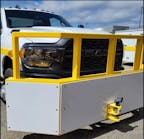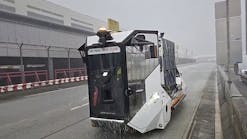Chapman Freeborn on COVID-19 Vaccine Transportation: “We are in a ‘Perfect Storm’ Scenario”
With the first approved vaccine and a number of others in the final stages of testing, eyes turn to the aviation industry with a burning question – can it be transported? According to Chapman Freeborn, a worldwide market leader in aircraft charter solutions, the vaccine transportation poses a number of difficult challenges but one that can be overcome with the right approach in place.
Currently 58 vaccines are in clinical trial on humans, one of them is already approved for use in the United Kingdom and a few are already showing promising results. Pfizer, Moderna and the University of Oxford vaccines proved to be up to 95% effective with the right dosage. While the trials are promising and the chances of returning to our normal lives are exciting, vaccine transportation might prove to be an overwhelming challenge.
“The main challenge that the aviation industry faces right now is planning,” said Neil Dursley, Chief Commercial Officer at Chapman Freeborn. “Currently we are in, what I would call, a ‘perfect storm’ scenario. The aviation industry, usually dominated and funded by passenger travel, is currently experiencing losses as the majority of those passenger fleets are grounded due to lack of travelers. There has been an enormous demand for freighter capacity and huge global demand for PPE (Personal Protective Equipment) during the first three quarters of 2020, many of the Commercial Passenger Airlines converted their passenger fleets to passenger freighter aircraft by stripping out the seats and loading the passenger hold with boxes of PPE.
We are now in the ‘peak period’, where traditionally large volumes are flown from predominantly Asia to Europe and the United States, additionally, half of the Worlds AN124 (world’s largest freight aircraft) fleet grounded for maintenance, taking a large capacity away from the market, so the potential of an urgent need for COVID-19 vaccine transportation puts air freight industry in a difficult position,” Neil Dursley summed up the situation.
According to the experts, the biggest issue the industry will face is large scale movement of vaccines over a short period of time. “We don’t have answers to many incredibly important questions yet. Where will it be manufactured? Will the vaccine require single dose or multiple per person? What temperature will it have to be transported in? All these factors are important in preparing for logistics,” shared Chapman Freeborn’s CCO.
Vaccines, that currently show the most potential, have to be transported in a controlled environment, low temperatures. The most challenging to the industry would be the transportation of Pfizer vaccine that requires shipments to be transported in near minus 70 degrees Celsius (-94°F) temperature, while Moderna requirements are less stringent – ‘only’ -20°C (-4°F). The University of Oxford vaccines would be the easiest to transport as it can be stored in regular fridge temperatures of 2 to 8°C (35.6 to 46.4°F).
“Under normal circumstances, vaccines and pharmaceuticals are handled by approved Global Freight Forwarders. These companies have invested millions over decades in ensuring that their staff are fully trained and their facilities in strategic locations are GDP(Good Distribution Practice) accredited. Likewise, many airlines have also gone through this process to be CEIV (Centre of Excellence for Independent Validators in Pharmaceutical Logistics) accredited. However, depending on the temperature range of the vaccine, all aircraft capacity will be required to move this enormous volume.
Many airlines and other companies are getting ready to support this global logistics requirement and are upgrading facilities, testing ‘sky cells’ and ‘Envirotainers’. At origin points and destinations, once the aircraft are offloaded, the product will need to go into warehouses at airports with ‘Cool Chain’ capabilities. They will then need to be transported using ‘reefer trucks’ to ensure the integrity of this precious commodity so the entire supply chain needs to be working together. We have multiple Airlines within our Group of companies with multiple assets and capacity to support the global distribution of the vaccines and all supporting equipment combined with our many commercial Airline partners, ground handling companies and trucking networks. This is something that Chapman Freeborn and the Avia Solutions Group is working towards,” Neil Dursley explained.




